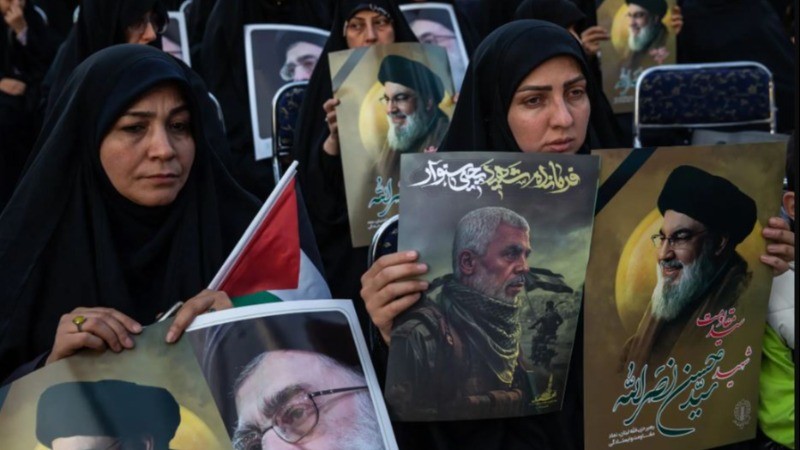
As tensions escalate between Iran and Israel, Iranian officials are preparing their military forces for potential conflict while simultaneously hoping to avoid war. This comes in light of fears regarding a retaliatory strike from Israel following a recent missile barrage launched from Iran.
In interviews, four Iranian officials disclosed that Supreme Leader Ayatollah Ali Khamenei has directed the military to formulate various response strategies should an Israeli attack occur. They indicated that the nature of any Iranian retaliation would depend on the extent of Israel's military actions. They requested anonymity to discuss sensitive military matters.
Should Israeli strikes cause significant damage and casualties, Iran is expected to retaliate. However, if the attacks are limited to a few military installations and warehouses, Iran may choose to remain passive.
The officials noted that Khamenei has emphasized a firm response if Israel targets oil and energy infrastructure, nuclear facilities, or carries out assassinations of high-ranking officials.
Two officials from the Islamic Revolutionary Guard Corps mentioned that potential responses could include launching up to 1,000 ballistic missiles, increasing operations by Iranian proxy groups in the region, and disrupting global energy supplies and shipping routes in the Persian Gulf and Strait of Hormuz.
While Iran publicly asserts that it seeks to avoid war, significant military strikes from Israel would compel its leaders to respond in a manner that maintains their authority, especially following Israel's recent targeted killings of key figures in Hamas and Hezbollah, both supported by Iran.
“In the event of an Israeli attack, the shape of our response will be proportionate and calculated,” Iran's Foreign Minister Abbas Araghchi stated during the BRICS summit in Kazan, Russia.
The implications of a full-scale war between Iran and Israel are profound, potentially worsening instability in the region, undermining cease-fire efforts in Gaza and Lebanon, and risking U.S. military involvement in support of Israel.
In recent weeks, Iran has been working to strengthen ties with neighboring Arab nations while warning them that any support for Israeli military actions would make them targets. Araghchi noted that he received assurances from neighboring countries that their airspace would not be used for Israeli operations against Iran.
Public comments from Iranian officials have varied regarding how to handle the situation. While President Masoud Pezeshkian and Araghchi have pledged to retaliate, their comments have been measured. In contrast, one commander dismissed potential Israeli attacks as minor, while a senior Revolutionary Guard commander threatened to eliminate all Zionists.
Hezbollah finance chief "eliminated" in Syria, says Israeli army
India and Iran Seek Diplomatic Dialogue Amid Rising Tensions in West Asia
US Investigates Leak of Classified Documents on Israel’s Planned Strike on Iran